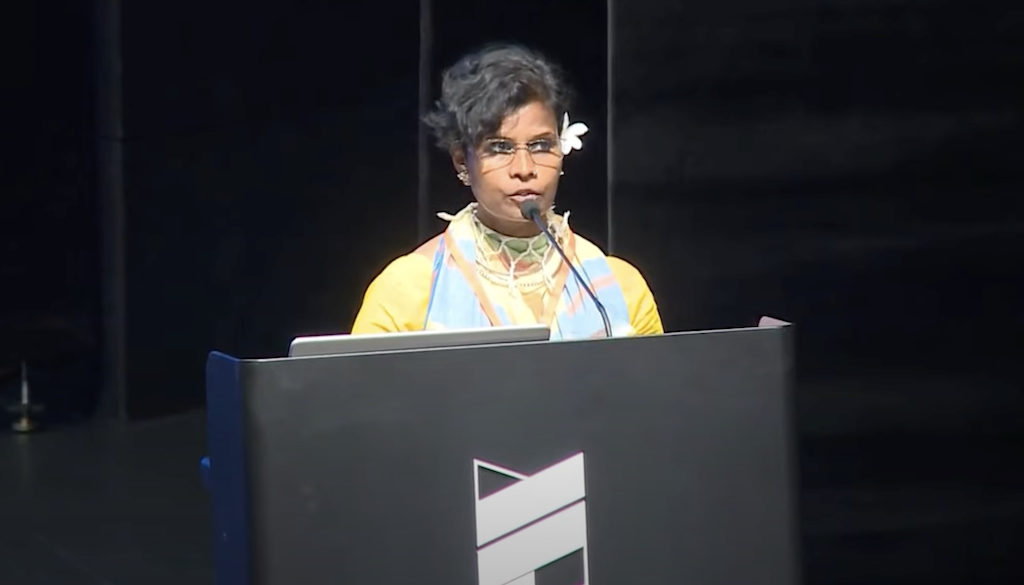Jacinta Kerketta, a distinguished poet, writer, and journalist from the Oraon Adivasi community of Jharkhand, delivered a stirring keynote at the 8th India Land and Development Conference. With her voice deeply rooted in the struggles and stories of her people, Jacinta brought the ongoing displacement and erosion of Adivasi land rights into sharp focus, weaving poignant poetry with hard-hitting narratives.
She began her address with a poem that captured the intimate relationship between Adivasi communities and their land. In both Hindi and English, her words painted a picture of a mother carefully foraging the forest, ensuring not to harm living trees. This imagery, she explained, reflects the Adivasi ethos of coexistence with nature—a stark contrast to the modern forces threatening their existence.
Jacinta turned her attention to Jharkhand, a state where Adivasis have historically maintained rights to ancestral lands such as Mundari Khutkatti and Bhumihari, derived from their forefathers’ labor of clearing forests for settlement. However, as she explained, the introduction of the Digital India Land Records Modernization Program, which aims to digitize land records under the guise of transparency, has exacerbated land dispossession. "Instead of benefiting the tribals and saving their land tenure," she asserted, "Digital India’s efforts have further increased their plunder."
She recounted the story of Bhagwa Oram, a villager who lost his ancestral land to dubious digitization processes. Despite repeated visits to administrative offices, hiring lawyers, and facing intimidation, Bhagwa’s land now lies behind a wall built by others. Similar stories echoed across her speech, painting a grim picture of systemic exploitation and the growing influence of casteism and corruption.
Jacinta also shed light on the resurgence of the Jamindari system, where descendants of former landlords are using loopholes in the digitized system to reclaim collective tribal lands. She introduced the audience to the United Paha Committee, a grassroots collective reviving traditional tribal governance systems to resist these encroachments. Through their efforts, hundreds of acres have been reclaimed, underscoring the resilience of Adivasi communities in the face of modern challenges.
Throughout her keynote, Jacinta emphasized the stark irony of Digital India—a project claiming to minimize disputes—becoming a tool of exploitation. For Adivasis, correcting errors in digitized records often entails bribes and sacrifices, from selling livestock to enduring deeper financial insecurity. “The minds of those running this country and those making policies are driven by casteism and supremacy,” she declared, her words a sharp critique of systemic inequities.
Ending her speech as she began, Jacinta recited another poem, reflecting the grief of her people as they watch their roots being severed. "They cannot stand the sight of trees, they cannot stand the roots of trees—they claim land," she lamented, encapsulating the relentless dispossession faced by Adivasis.
Jacinta Kerketta’s address was a call to conscience, challenging India to reckon with the consequences of its development paradigms. Her words were not just an account of loss but also a testament to the enduring spirit of Adivasi communities fighting for their land, their identity, and their future. Her voice will resonate with audiences far beyond the conference, inspiring action and reflection.


